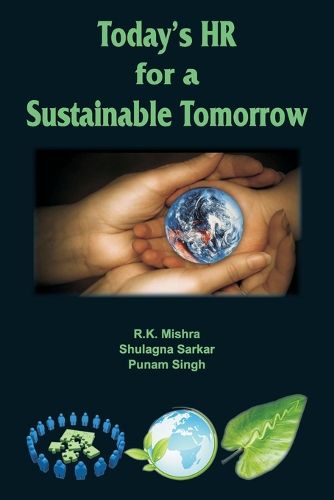Readings Newsletter
Become a Readings Member to make your shopping experience even easier.
Sign in or sign up for free!
You’re not far away from qualifying for FREE standard shipping within Australia
You’ve qualified for FREE standard shipping within Australia
The cart is loading…






This title is printed to order. This book may have been self-published. If so, we cannot guarantee the quality of the content. In the main most books will have gone through the editing process however some may not. We therefore suggest that you be aware of this before ordering this book. If in doubt check either the author or publisher’s details as we are unable to accept any returns unless they are faulty. Please contact us if you have any questions.
We are currently experiencing a sustainability revolution that promises to be as transformative as the agricultural and industrial revolutions of the past. This new wave of change is reshaping the way we live, work, and conduct business. To successfully navigate this revolution, innovation and creativity will be essential. There is an urgent need to develop radical, eco-friendly products and practices that minimize environmental harm while creating new opportunities for business growth and employment.
This book is particularly relevant for business and management students, academicians, researchers, practitioners, consultants, corporate managers, policymakers, governmental and non-governmental organizations, and international bodies with a specific interest in sustainable human resource management (HRM). Focused on the intersection of HRM and sustainability, the book explores a wide range of themes that show how HR functions can be strategically designed and implemented to support sustainability objectives.
The authors examine the integration of sustainable practices within HR systems-from developing a sustainability-oriented organizational culture to implementing best practices that align HR policies with environmental and social goals. Various perspectives are presented, highlighting the role of HRM in areas such as employer branding, employee engagement, and workforce development. The book also emphasizes the importance of HRM in shaping future-ready organizations, fostering positive employee relations, and supporting long-term sustainability initiatives.
$9.00 standard shipping within Australia
FREE standard shipping within Australia for orders over $100.00
Express & International shipping calculated at checkout
This title is printed to order. This book may have been self-published. If so, we cannot guarantee the quality of the content. In the main most books will have gone through the editing process however some may not. We therefore suggest that you be aware of this before ordering this book. If in doubt check either the author or publisher’s details as we are unable to accept any returns unless they are faulty. Please contact us if you have any questions.
We are currently experiencing a sustainability revolution that promises to be as transformative as the agricultural and industrial revolutions of the past. This new wave of change is reshaping the way we live, work, and conduct business. To successfully navigate this revolution, innovation and creativity will be essential. There is an urgent need to develop radical, eco-friendly products and practices that minimize environmental harm while creating new opportunities for business growth and employment.
This book is particularly relevant for business and management students, academicians, researchers, practitioners, consultants, corporate managers, policymakers, governmental and non-governmental organizations, and international bodies with a specific interest in sustainable human resource management (HRM). Focused on the intersection of HRM and sustainability, the book explores a wide range of themes that show how HR functions can be strategically designed and implemented to support sustainability objectives.
The authors examine the integration of sustainable practices within HR systems-from developing a sustainability-oriented organizational culture to implementing best practices that align HR policies with environmental and social goals. Various perspectives are presented, highlighting the role of HRM in areas such as employer branding, employee engagement, and workforce development. The book also emphasizes the importance of HRM in shaping future-ready organizations, fostering positive employee relations, and supporting long-term sustainability initiatives.